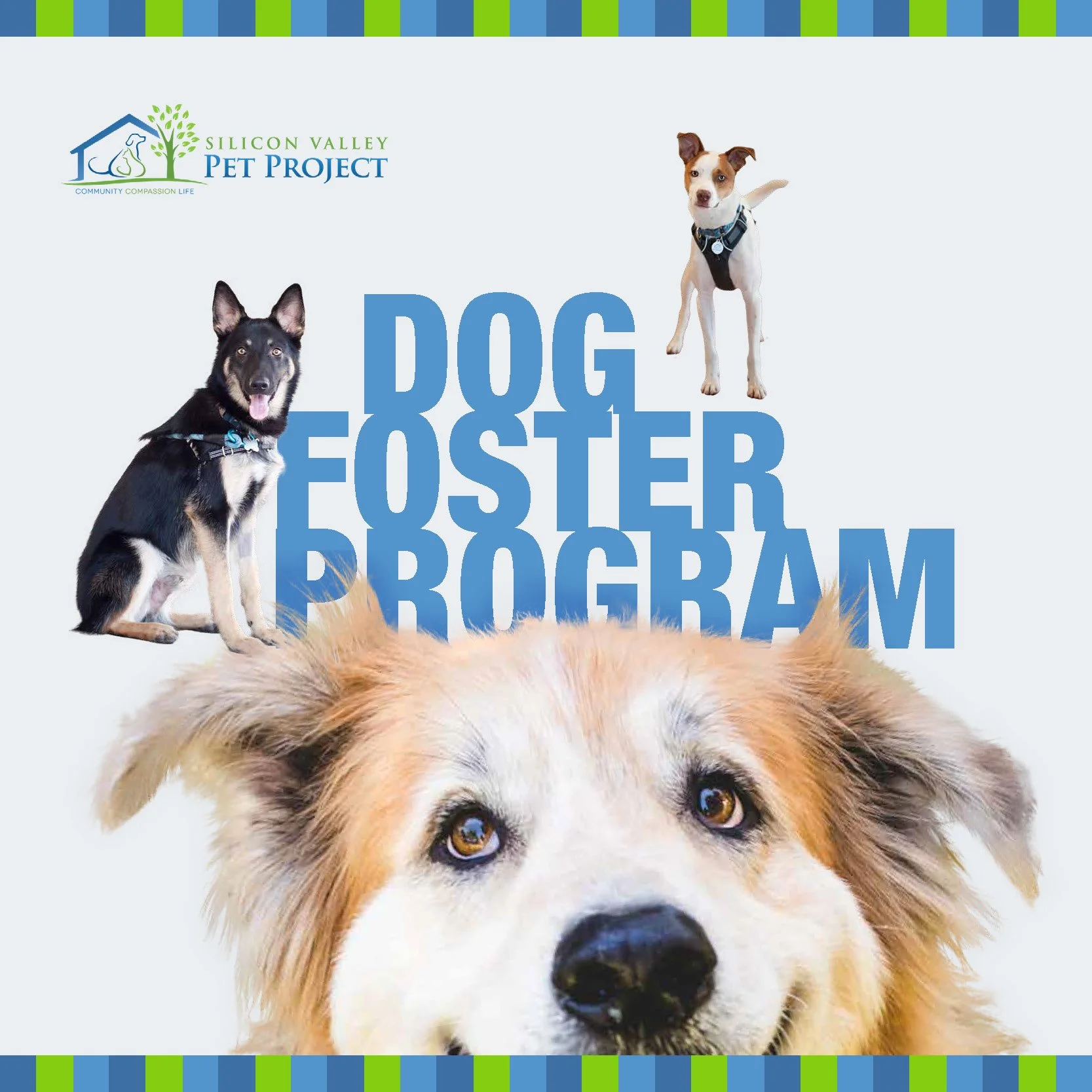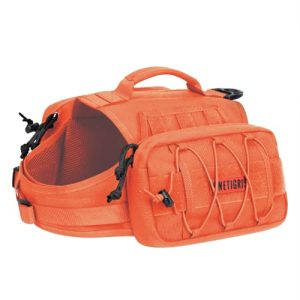Are you ready to make a real difference in a dog’s life? Becoming a foster dog parent is one of the most rewarding ways to help animals in need—and it might be easier than you think.
Imagine opening your home and heart to a furry friend who needs temporary care, love, and a safe place to heal. You’ll discover simple steps to get started, what to expect, and how your time as a foster can change not just a dog’s life, but yours too.
Keep reading to find out how you can become a hero for dogs waiting for their forever homes.
Benefits Of Fostering Dogs
Fostering dogs offers many rewards beyond just providing a temporary home. It creates a safe space for dogs to heal and learn new habits. Foster parents play a key role in saving lives and shaping futures. Understanding these benefits helps to see why fostering is so important.
Helping Dogs In Need
Foster homes offer shelter to dogs without families. They provide love, care, and comfort during tough times. This support helps dogs recover from illness or trauma. Foster parents give dogs a chance to thrive and prepare for adoption. They help reduce stress in crowded shelters.
Gaining Personal Rewards
Fostering brings joy and satisfaction. It builds strong bonds with animals. You learn about dog behavior and training. It teaches patience and responsibility. Many foster parents feel proud to save lives. The experience can improve mental health and reduce loneliness.
Supporting Animal Shelters
Fostering eases shelter overcrowding. It frees space for more animals in need. Shelters can focus resources on urgent cases. Foster parents help shelters manage care better. This partnership strengthens the entire rescue system. It creates a community dedicated to animal welfare.
Qualities Of A Good Foster Parent
Becoming a foster dog parent is a rewarding journey, but it demands certain qualities to ensure the well-being of the dogs in your care. These qualities help you handle challenges smoothly and create a nurturing space for each dog’s unique needs. Understanding what makes a good foster parent will prepare you for the responsibilities ahead and improve your foster experience.
Patience And Commitment
Fostering a dog often means working with animals that have experienced trauma or neglect. You need patience to help them adjust to a new environment and build trust at their own pace.
Commitment is just as important. Dogs may require weeks or even months of care before they are ready for adoption, so you must be ready to stay consistent without giving up too soon.
Think about your schedule and energy—can you commit to daily care, training, and emotional support? Your dedication directly affects the dog’s progress.
Flexibility And Adaptability
Each foster dog comes with a different personality and set of needs. You might need to adjust your routine or approach based on the dog’s behavior or health requirements.
Flexibility means being open to learning new training techniques or handling unexpected situations like vet visits or separation anxiety.
Ask yourself: Are you ready to shift your plans and mindset to make room for a dog’s unique challenges? Adaptability will help you provide the best care possible.
Providing A Safe Environment
Your home should be a secure and comfortable place for foster dogs. This means removing hazards, creating quiet resting spots, and ensuring they can’t escape or get hurt.
Safety also involves mental and emotional well-being. Dogs need a calm environment where they feel protected and loved, free from loud noises or stressful situations.
Consider how you can modify your space to keep foster dogs safe and relaxed. How can you make your home a true sanctuary for them?
Preparing Your Home
Preparing your home is the first step to becoming a foster dog parent. A welcoming space helps dogs feel safe and loved. It also makes caring for them easier. Thoughtful preparation creates a smooth transition for both you and the dog. Focus on comfort, supplies, safety, and cleanliness.
Creating A Comfortable Space
Choose a quiet area for the dog to rest. Use a soft bed or blanket for warmth. Keep the space calm and free from loud noises. Allow enough room to move and stretch. Make sure the area is easy to clean. Dogs need a safe spot to relax and feel secure.
Gathering Essential Supplies
Prepare basic items before the dog arrives. Include:
- Food and water bowls
- Dog food recommended by the shelter or vet
- Toys to keep the dog entertained
- Leash and collar with ID tags
- Cleaning materials like poop bags and disinfectant
Having these supplies ready supports the dog’s health and happiness.
Ensuring Safety And Hygiene
Check your home for hazards. Remove small objects the dog could swallow. Secure electrical cords and toxic plants out of reach. Use baby gates to block unsafe areas if needed. Clean floors and surfaces regularly. A clean, safe environment prevents accidents and illness.

Credit: www.svpetproject.org
Finding The Right Dog To Foster
Finding the right dog to foster is a crucial step in your fostering journey. It ensures a positive experience for both you and the dog. The right match can lead to a happy and safe environment. Consider your daily routine, space, and energy level before choosing a dog. Understanding your lifestyle helps in selecting a dog that fits well with your home.
Assessing Your Lifestyle
Think about your daily schedule and activity level. Do you have time for walks and play? How much space is available at home? Dogs need room to move and feel comfortable. Consider your family members and their needs. Some dogs do better with children or quiet adults. Be honest about your ability to care for a dog’s needs.
Matching Dog Temperament
Dogs have different personalities. Some are calm, others are energetic or shy. Choose a dog whose temperament fits your lifestyle. A high-energy dog needs lots of exercise and playtime. A shy dog may need gentle care and patience. Understanding a dog’s temperament helps prevent stress for both of you. Ask about the dog’s behavior before agreeing to foster.
Working With Rescue Organizations
Rescue groups know their dogs well. They can help match you with a suitable dog. Share your lifestyle and preferences with them. They will suggest dogs that fit your situation. Rescue staff provide support and advice throughout fostering. They also handle medical care and adoption processes. Building a good relationship with the rescue team makes fostering easier and more rewarding.
Caring For Your Foster Dog
Caring for your foster dog means meeting their basic needs and creating a safe, loving environment. Each dog has unique habits and health requirements. Understanding these needs helps your foster dog feel comfortable and happy. This care builds trust and prepares them for a forever home.
Feeding And Nutrition
Provide high-quality dog food suited to your foster dog’s age and size. Follow the feeding guidelines from the shelter or rescue group. Offer fresh water at all times. Avoid giving human food, especially chocolate, grapes, or onions. Keep feeding times consistent to help the dog settle into a routine.
Exercise And Socialization
Daily exercise is essential to keep your foster dog healthy and happy. Walks, playtime, and safe outdoor activities help release energy. Socialize your dog with other pets and people carefully and calmly. Use positive reinforcement to encourage good behavior. Patience is key in building confidence and trust.
Managing Health And Vet Visits
Monitor your foster dog for signs of illness or discomfort. Common signs include changes in appetite, behavior, or energy. Schedule vet visits as recommended by the rescue organization. Keep vaccination and flea prevention up to date. Keep a record of all health information for the dog’s new family.

Credit: www.pawsrescueleague.org
Handling Challenges In Fostering
Fostering a dog can be rewarding but comes with challenges. Understanding these challenges helps you provide better care. Handling them with patience and knowledge makes the experience smoother for both you and the dog.
Dealing With Behavioral Issues
Dogs in foster care may show fear or aggression. These behaviors come from past trauma or change. Approach them calmly and with consistency. Use positive reinforcement to encourage good behavior. Avoid punishment, as it can worsen fear. Establish a routine to create a sense of security. Be patient; behavior improvement takes time.
Managing Emotional Attachments
Foster parents often grow very close to their dogs. Saying goodbye can feel very hard. Remember, your care helps dogs find permanent homes. Focus on the dog’s well-being, not just your feelings. Share your emotions with friends or support groups. Celebrate the success of each dog’s adoption. This helps keep your heart strong for new fosters.
Seeking Support And Resources
Fostering is easier with the right help. Reach out to rescue groups for advice and training. Join online forums or local foster communities. Share experiences and learn from others. Use available resources like vet care and training guides. Don’t hesitate to ask for help when needed. Support keeps you confident and prepared for challenges.
Preparing Dogs For Adoption
Preparing a foster dog for adoption means helping them become ready for a new home. It involves teaching good behavior, building social skills, and making sure they feel comfortable with people and other animals. This preparation increases the chance of finding the perfect family for the dog quickly.
Training And Social Skills
Basic training helps dogs learn good manners. Simple commands like sit, stay, and come are important. Consistent training builds the dog’s confidence and trust.
Social skills include meeting new people and other pets. Exposure to different environments helps dogs feel calm and safe. This reduces anxiety and improves their chances of adoption.
Promoting Your Foster Dog
Sharing photos and stories about the dog attracts potential adopters. Clear, honest descriptions highlight the dog’s personality and needs.
- Use social media and local community boards.
- Include details about behavior and health.
- Showcase any special talents or habits.
Good promotion helps find the right home faster.
Coordinating With Adopters
Communication is key when matching dogs with adopters. Understand the adopter’s lifestyle and preferences.
Share information about the dog’s habits and care needs. Prepare for meet-and-greet sessions to see how they connect. Follow up after adoption to support the new family.

Credit: www.utahhumane.org
Frequently Asked Questions
What Is A Foster Dog Parent?
A foster dog parent provides temporary care to dogs in need. This helps shelters by freeing up space and giving dogs a loving environment. Foster parents help dogs adjust to home life and prepare them for adoption.
How Do I Become A Foster Dog Parent?
To become a foster dog parent, contact local shelters or rescue organizations. They usually require an application, interview, and home visit. Training or orientation sessions might also be necessary. Each organization has its own requirements and processes.
What Are The Benefits Of Fostering A Dog?
Fostering provides companionship and helps save a dog’s life. It offers the joy of helping an animal in need. Foster parents gain experience in pet care, which can be rewarding and enriching.
How Long Do Foster Dogs Stay?
Foster durations vary depending on the dog’s needs and adoption prospects. It can range from a few weeks to several months. The shelter or rescue organization can provide an estimated timeframe.
Conclusion
Becoming a foster dog parent brings joy and purpose. It helps dogs find loving homes faster. You offer care, comfort, and hope to animals in need. The experience teaches patience, kindness, and responsibility. Each foster dog changes your life in unique ways.
Start small and learn as you go. Your support truly makes a difference. Foster dogs rely on people like you. Ready to open your heart and home? The journey begins with one simple step.

Emily Barker is the founder of ChillDogLife.com, a space dedicated to helping pup parents discover the best dog products, lifestyle tips, and cozy ideas for happier homes.
A lifelong dog lover, Emily combines her passion for pets with a knack for research to share trusted recommendations on everything from toys and furniture to health and everyday care.
Her goal is simple: to make life easier, stylish, and more joyful for dogs and the people who love them.







